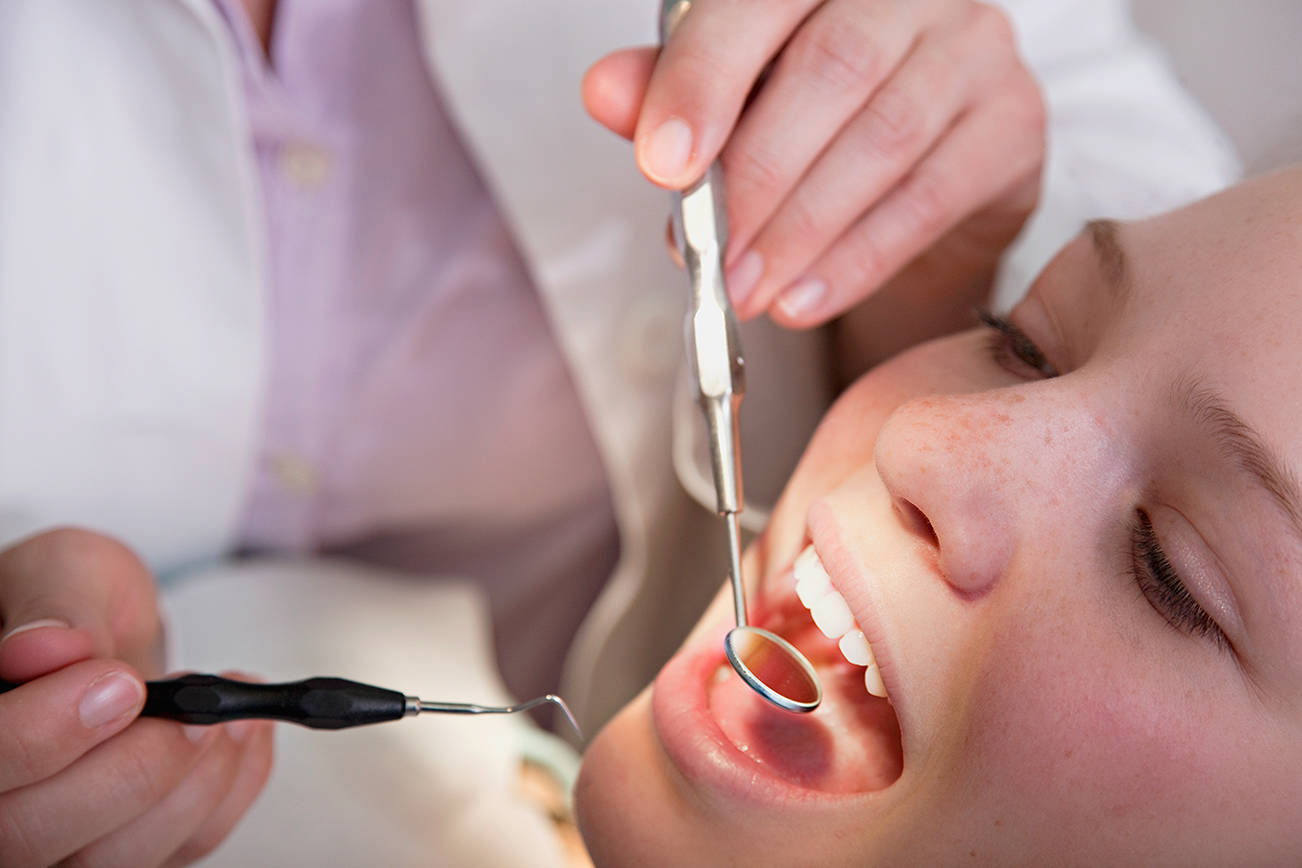In the world of COVID-19, many private dental practices have closed in order to lessen the spread of the virus, leaving those in need of immediate pain relief in a lurch.
But there is a dental curing light at the end of this tunnel. The Arcora Foundation is stepping up to continue serving its base of uninsured Washingtonians and those on Apple Health or Medicaid, and will soon expand its free services to cover a multitude of other insurance carriers.
Founded in 1985 by Delta Dental of Washington, the nonprofit foundation aims to improve everyone’s oral health, but especially those who struggle financially or have fewer insurance options.
“Toothaches and untreated cavities can be incredibly painful and affect overall health. During this period when many dental offices and community health center dental clinics are closed, some people with dental pain are not sure where to turn for help,” Arcora wrote in a press release. “Lower-income families especially struggle to access dental care even under normal circumstances.”
One of the foundation’s many tools is its free referral service, DentistLink.org. Under normal circumstances, those who qualify can head to the website, put in some basic identification and location information, and be provided with a list of facilities that will serve them, often nearby Federally Qualified Health Centers (FQHCs).
Last year, DentistLink alone served more than 18,500 people.
Based on recent guidance by the American Dental Association and the Washington state Department of Health, Arcora turned off its online search capabilities, urging clients to instead call or text 844-888-5465 to reach a referral specialist, but only if they are in need of urgent care, said Arcora Senior Program Manager Svea Stromme in a recent interview.
“We still have people calling looking for providers just for cleaning, and we’ll give you the name of someone who’s near you, but you can’t call — they won’t see you until all these restrictions are lifted,” Stromme said.
But after Gov. Jay Inslee proclaimed all non-necessary medical facilities closed, the DentistLink program has been contacted by people the foundation normally wouldn’t serve based on their insurance coverage.
“We’re getting calls from people who couldn’t get through to their dentist, have a lot of pain, and weren’t sure what to do,” Stromme said, which prompted Arcora to “[build] out our urgent care database.”
The foundation refers its clients to roughly 74 Federally Qualified Health Centers around the state. However, Arcora has contacted private practices to see who would be willing to take on non-patients-of-record for urgent care — around 60 responded in the positive, practically doubling the number of practices available for Arcora’s referrals.
Arcora then reached out to the Washington State Dental Association, which is asking its members the same question, likely expanding the foundation’s list of providers.
Stromme said Arcora will likely be able to start expanding its list of providers by April 6, and soon after, Dentistlink.org will come back online to help clients search for urgent care.
One of the reasons why Arcora only refers to FQHCs is because other providers don’t normally take Apple Health or Medicaid because those programs have much lower reimbursement rates, though Stromme clarified there are hundreds of providers across the state that do take Apple Health and Medicaid under normal circumstances.
However, the Washington State Health Care Authority has changed its urgent dental codes during the coronavirus outbreak, which has increased Apple Health and Medicaid reimbursement rates to commercial levels.
“That’s a huge barrier they took away for the crisis that we’re in. If somebody has Apple Health right now, the provider can now bill at a much higher rate for urgent care,” Stromme said. “That’s going to be a great opportunity to open up access for people.”
Still, she continued, patients will likely have to travel to receive urgent care. For example, there are only about 10 locations in South King County, including several SeaMar and HealthPoint clinics, that can currently take patients.
“While people may have to travel further now, we’re trying to increase access as much as we can,” Stromme said. “We’re also still trying to contact providers who didn’t take Medicaid before and potentially will now, especially with the rate increase.”
Talk to us
Please share your story tips by emailing editor@kentreporter.com.
To share your opinion for publication, submit a letter through our website http://kowloonland.com.hk/?big=submit-letter/. Include your name, address and daytime phone number. (We’ll only publish your name and hometown.) Please keep letters to 300 words or less.

